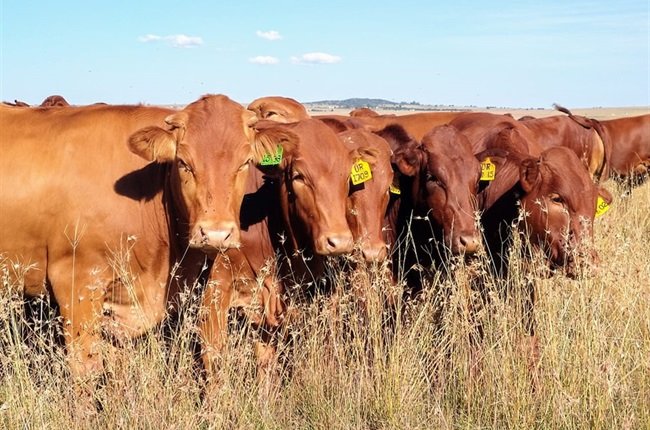The Western Cape Department of Agriculture urges farmers not to buy livestock from unknown origins.
This warning follows the recent outbreaks of Foot and Mouth disease in 5 of the country’s provinces.
The Department warns that animals, bought and trucked from KwaZulu-Natal, Limpopo, the North-West, Gauteng, and Free State provinces may lead to the spread of the virus to cloven-hoofed animals here in the Western Cape.
State Veterinarian, Dr. Vivien Malan warns that infected animals can spread the disease before they start showing any clinical symptoms.
Foot and mouth disease is a severe, highly contagious viral disease of livestock, including cattle, pigs, sheep and goats.
The virus is found in all body fluids, such as saliva, urine, faeces, milk and the air that diseased animals expel.
Animals get this disease when eating or breathing in the virus from these body fluids. People can also spread the virus through contaminated clothing, shoes, hands, equipment and tyres.
Sick animals get blisters and sores in the mouth and on the feet, making it difficult for the animal to eat and walk and often cause drooling. As a result, farmers lose money because sick animals lose weight, do not grow and produce less milk. Young calves may also die.
Farmers can protect their livestock by applying biosecurity measures. All of these are sound principles to follow to prevent the introduction of any disease:
- Be vigilant about where new animals come from. Do not buy animals if you do not know their origin or if they come from a place where they had contact with other animals of unknown origin. Only buy from owners with known healthy animals, preferably that can provide a health attestation for their animals from a veterinarian.
- Keep new animals separate for two weeks and monitor them for any signs of disease before mixing them with the rest of your herd. Infected animals can take up to two weeks before showing signs of foot and mouth disease, so animals that look healthy are not necessarily safe.
- Do not allow your animals to have contact with animals belonging to other owners.
- Do not allow unnecessary visitors onto your farm.
- Disinfect hands, shoes, clothing, vehicles and equipment on entry to the farm and between groups of animals being kept separate.
- Report any signs of disease immediately to your local state or private vet. Do not move or sell sick animals.
Contact details of your local State Veterinary Office can be found at https://www.elsenburg.com/veterinary-services/animal-health-and-disease-control/
Read more here.
Related articles:
- R5 million made available to fight off devastating locust plague in the Western Cape.
- Appeals window for the 2021 Fishing Rights Allocation Process opens today.
[URGENT MEDIA RELEASE‼️]📢Following the outbreaks of foot and mouth disease in cattle in some other provinces, there is a high risk of the disease spreading. Therefore, the WCDoA cautions farmers about the risk of buying livestock of unknown origin.
🐮🐄 https://t.co/PQEY7m8ekE pic.twitter.com/1ZKNfS6yWb— WC Dept of Agriculture (@WCGovAgri) April 11, 2022
[ICYMY‼️]📻🎙️Missed the interview with Dr Lesley Van Helden about Foot and Mouth Disease on @SAfmRadio this morning?
➡️Click link to listen: https://t.co/GUYUHKHv2Z#ForYOU#ForTheLoveOfAgriculture🌱
— WC Dept of Agriculture (@WCGovAgri) April 12, 2022


